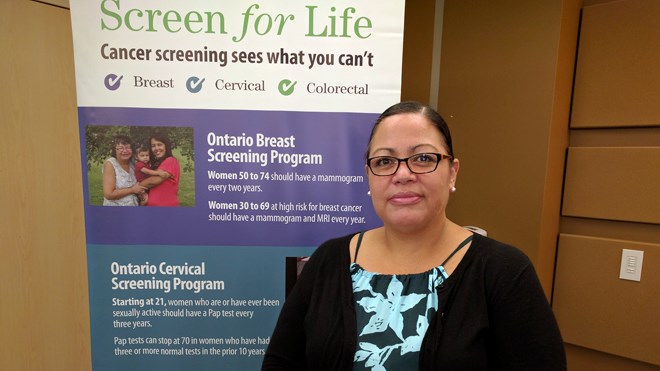Women in northeastern Ontario are less likely to get screened for cervical cancer than in other parts of the province, the the screening rate among First Nations women is lower still.
To increase those rates, the North East Aboriginal Cancer Screening Network and the North East Cancer Centre have teamed up for a new campaign to encourage sexually active women over the age of 21 to get regular Pap tests.
Dr. Jennifer Jocko, cervical screening and colposcopy clinical lead for the north east, said cervical cancer is a fully preventable disease with early screening.
She added the only way to diagnose the disease at its early stages is through screening.
Jocko has lent her voice to a radio campaign to encourage more First Nations women to get screened.
She said the topic is an emotional one for her because First Nations women face many barriers getting access to health care.
“As a First Nations woman, I went into obstetrics and gynecology to be a friendly face to other First Nations women,” she said. “With the radio campaign specifically, I can reach hundreds of women that way and try to normalize that screening is a recommended and a normal aspect of being a healthy woman.”
For many First Nations people health care is low on the list of daily priorities, Jocko said.
Elizabeth Edgar-Webkamigad, co-chair of the North East Aboriginal Cancer Screening Network, said topics that are uncomfortable to discuss, such as cervical cancer screening, can pose the biggest barrier to getting proper care.
She said the screening campaign uses First Nations women from local communities to make the message more relatable.
“We've included people they can identify with,” she said.
Edgar-Webkamigad said the campaign will distribute posters and pamphlets to health-care practitioners and First Nation health centres across the region.
